The Last of Us is great, but Station Eleven is the best post-apocalypse show I’ve ever seen
You don't need Clickers to make a compelling post-apocalyptic story
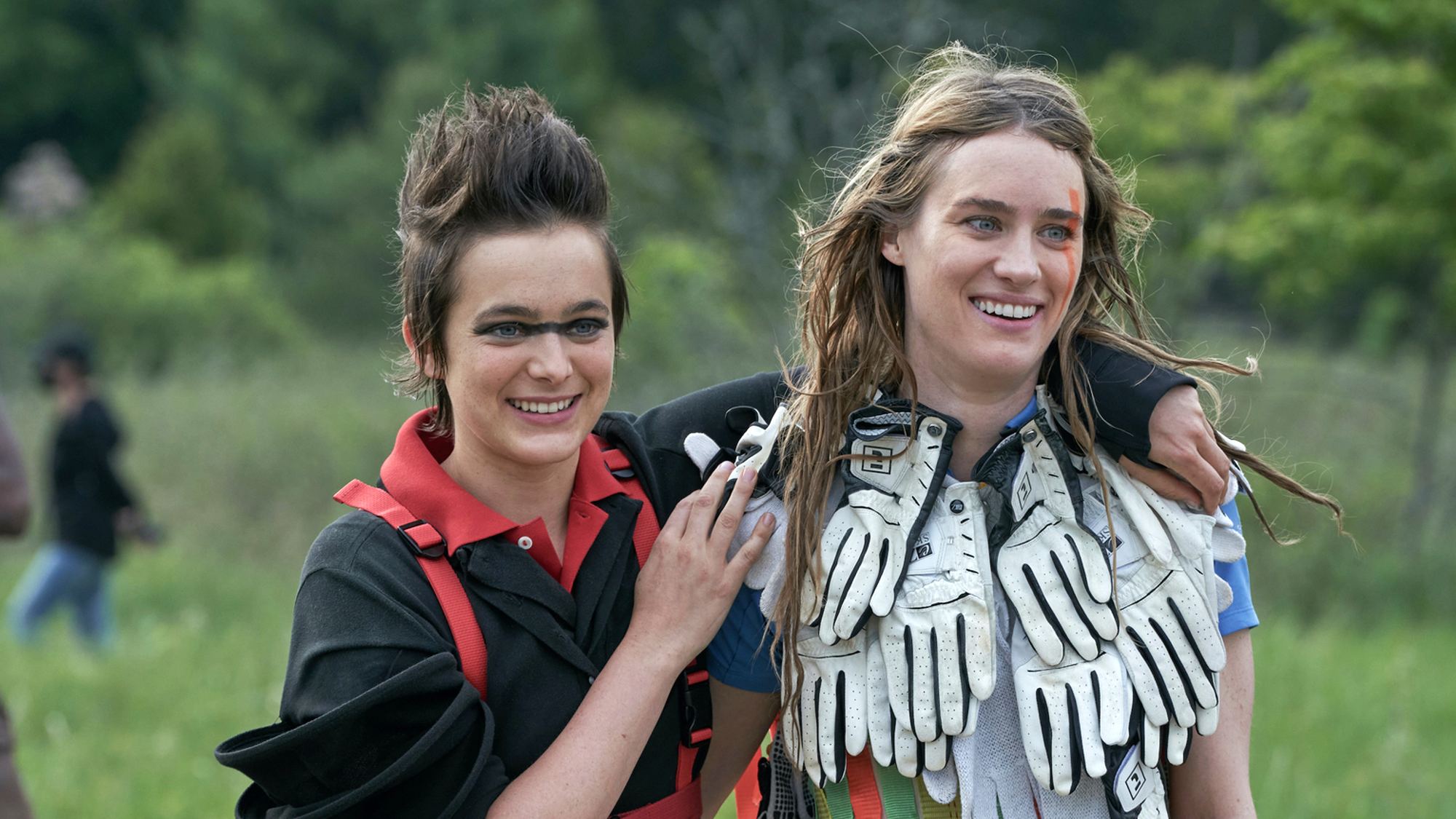
Here at Tom’s Guide our expert editors are committed to bringing you the best news, reviews and guides to help you stay informed and ahead of the curve!
You are now subscribed
Your newsletter sign-up was successful
Want to add more newsletters?

Daily (Mon-Sun)
Tom's Guide Daily
Sign up to get the latest updates on all of your favorite content! From cutting-edge tech news and the hottest streaming buzz to unbeatable deals on the best products and in-depth reviews, we’ve got you covered.

Weekly on Thursday
Tom's AI Guide
Be AI savvy with your weekly newsletter summing up all the biggest AI news you need to know. Plus, analysis from our AI editor and tips on how to use the latest AI tools!

Weekly on Friday
Tom's iGuide
Unlock the vast world of Apple news straight to your inbox. With coverage on everything from exciting product launches to essential software updates, this is your go-to source for the latest updates on all the best Apple content.

Weekly on Monday
Tom's Streaming Guide
Our weekly newsletter is expertly crafted to immerse you in the world of streaming. Stay updated on the latest releases and our top recommendations across your favorite streaming platforms.
Join the club
Get full access to premium articles, exclusive features and a growing list of member rewards.
I’m really enjoying HBO’s The Last of Us, which is not a surprise. I enjoyed the game, and the TV show is a pretty faithful adaptation. But in between weekly episode drops, I was looking for something else to watch on the various streaming platforms I subscribe to.
Given the chatter around The Last Of Us, other post-apocalyptic shows were flagged, with Station Eleven (which is also on HBO Max) catching my eye. I’d heard positive murmurings about it in 2021, but those got swamped by other big releases. Yet when it was mentioned in the excellent The Back Page podcast, which happens to be run by Future alumni, I decided to give it a quick look. An hour later I was hooked.
Going by its name I had thought Station Eleven was going to be about survivors holed up in a remote radio station after deadly flu killed 99% of the world’s population. But to my surprise, it’s mostly focused on a traveling group of Shakespearean actors and musicians called the Travelling Symphony. Yes, really…
Station Eleven is not your typical end of the world drama
Station Eleven (based on Emily St. John Mandel's novel of the same name) offers a rather fresh alternative to the world of programs focused on post-apocalyptic groups of survivors. Gone is the grim determination of Joel (Pedro Pascal) or the intense stares of The Walking Dead’s Rick Grimes (Andrew Lincoln). Instead, we see a colorful troupe of characters navigating a well-trodden route between various post-apocalyptic settlements, some 20 years after the world fell apart.
Without going into spoiler territory, Station Eleven mostly tells the tale of Kirsten, both as an adult (Mackenzie Davis, who you might remember from Black Mirror’s "San Junipero" episode) and a kid (Matilda Lawler) and her unlikely guardian Jeevan Chaudhary (Himesh Patel). And, of all places, they met at a performance of King Lear.
All three actors are outstanding at portraying surprisingly complex characters dealing with the problems of the past, present, and somewhere in between. And the supporting cast of odd and intriguing characters is equally impressive, with vague connections between them all.
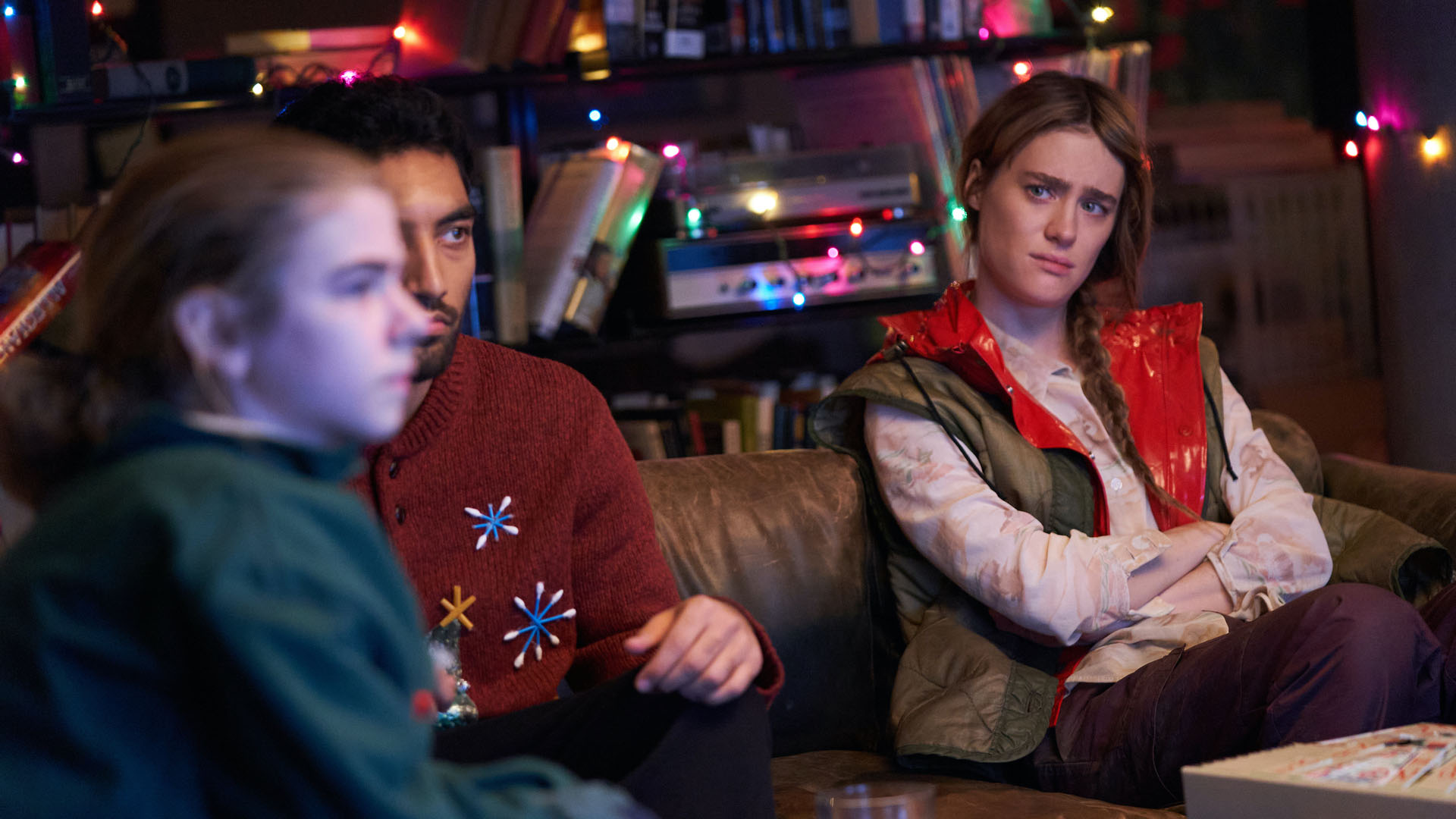
The tale of these characters is told non-linearly, as we time jump around. Sometimes we're before the pandemic, and others during and after. Some moments only last for a split-second with a few frames, others in lengthier sequences.
Get instant access to breaking news, the hottest reviews, great deals and helpful tips.
With the time jumps and deliberately disjointed nature of the flashbacks, the story is initially hard to parse. But Station Eleven becomes a slow-burn affair that smolders as all of its disparate narrative threads come together to deliver a satisfying conclusion.
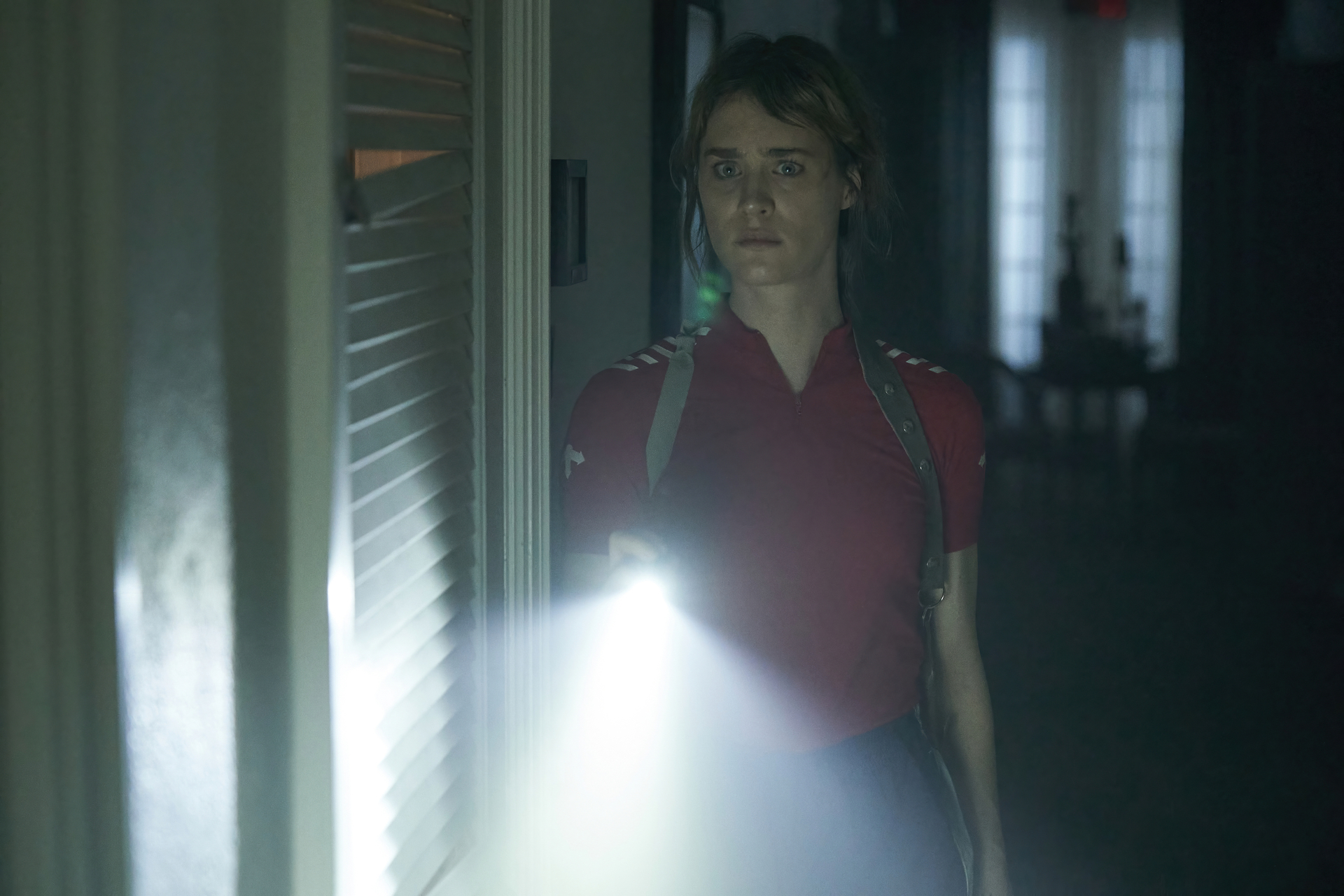
That’s not to say there aren't cliffhangers or dramatic moments, just this show is more thoughtful and lets you drink in its lengthy shots and scenes. Instead of setting your heart pounding as Walkers break through barricades or grab unsuspecting survivors, you're watching humanity deteriorate and attempt to rebuild.
A post-apocalypse that clicks without Clickers
While I love the creepy, terrifying Clickers of The Last of Us, not having zombies or some form of mutant creature makes Station Eleven feel grounded, especially as it came out when the real world was in the midst of the coronavirus pandemic.
But more refreshing is the way Station Eleven creates a post-apocalyptic world. In the first 100 days of the lethal pandemic, the Earth doesn't suddenly go mad or get overrun with monstrous humans. Instead, it crumbles away as the people who maintain critical infrastructure die of the deadly flu.
As a result, the post-apocalyptic America we get to see 20 years later, isn’t one filled with crazy cults. But one with logical communities or people banding together having been in the right place at the right time.
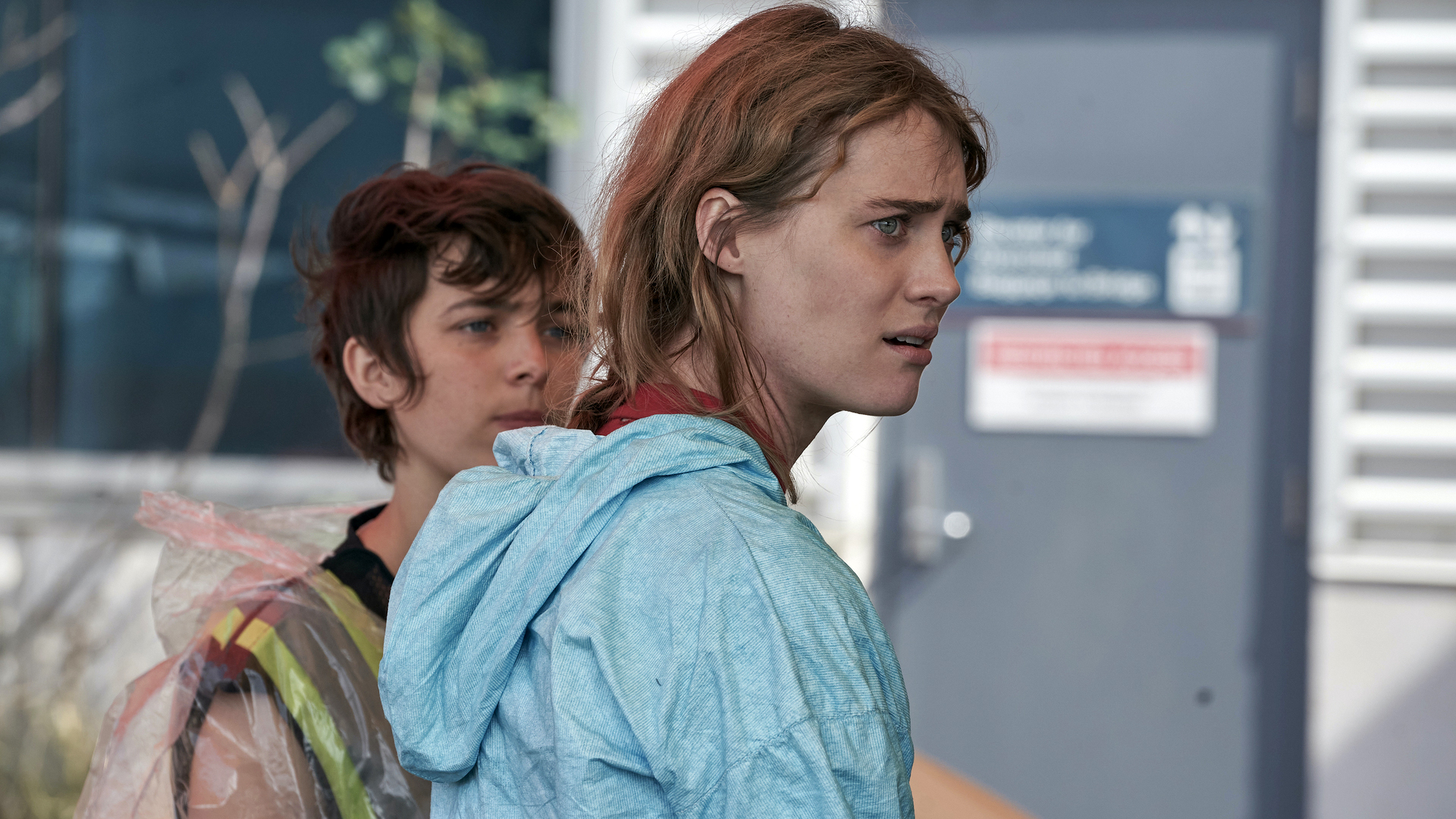
Sure, there’s a wariness of strangers. But this is almost an evolution of the feeling one feels when walking down a quiet dark street when another unknown person is coming in the other direction, rather than the immediate threat and drawing of weapons when encountering others that happens in the likes of Cormac McCarthy's The Road.
Dangerous groups do exist but are made up of people who were dangerous before the fall of civilization. This avoids the somewhat tired cliches of seeing the likes of accountants suddenly become raging cannibals in the space of a few years of living in a collapsed society.
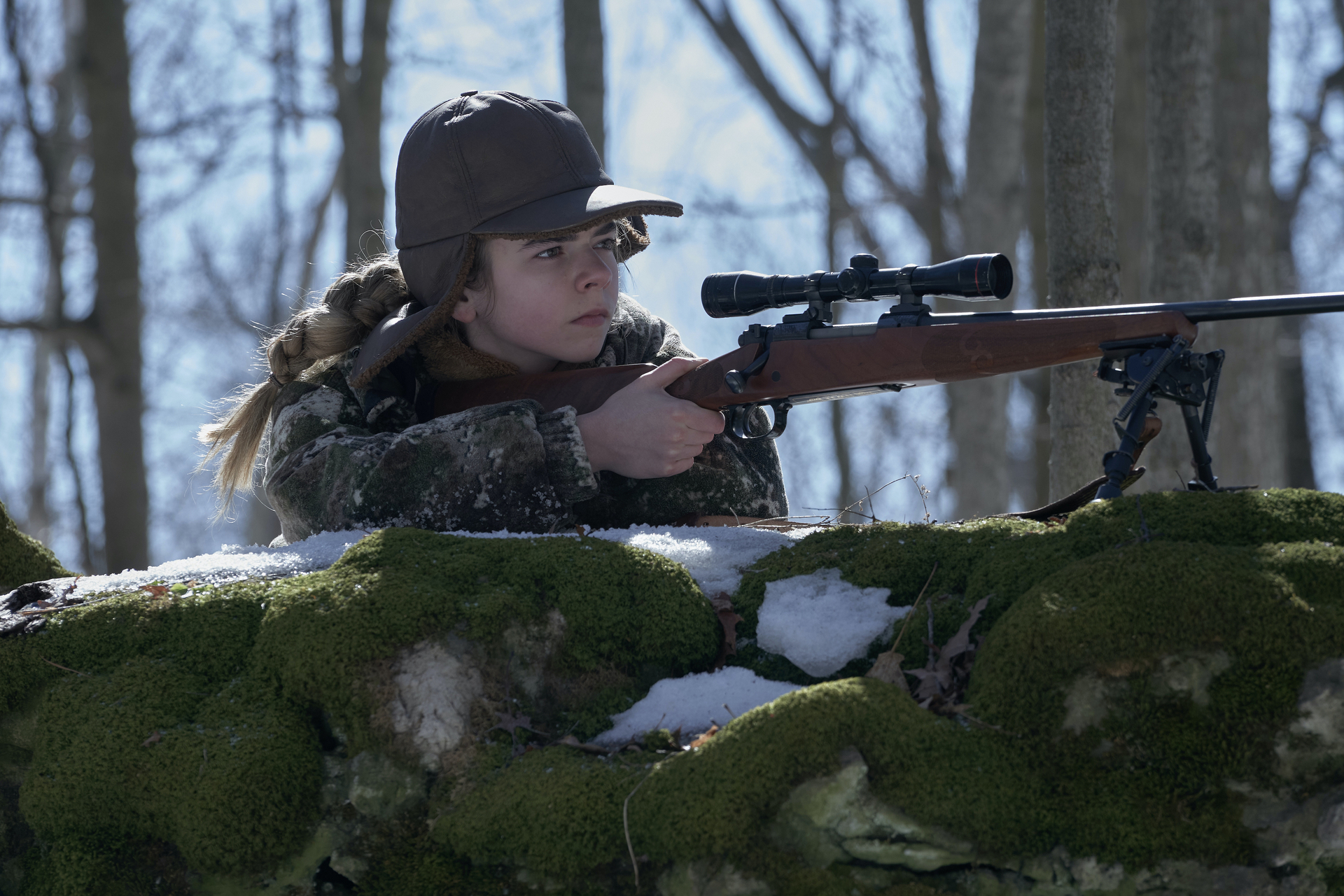
Both the existing strengths and flaws of the people in Station Eleven’s post-apocalypse are brought to the fore and gradually evolve as the need to survive slowly transforms into a desire to thrive.
Outlook: Station Eleven's got its own demons — and they're more relatable
For example, the seemingly directionless Jeevan slowly finds purpose in post-apocalyptic life, yet isn’t completely free of self-doubt. And while Kirsten has experienced some trauma in her first 100 days of the pandemic, she can still find joy in the art of acting.
Meanwhile, the main antagonist of Station Eleven isn’t so much an evil person but is more deluded and damaged from events of the early pandemic and disruptive childhood.
In short, what Station Eleven does brilliantly is show that humans will be humans despite the circumstances. Even after the fall of civilization as we know it, some will try to find joy, while others seek meaning, be it for good or ill; essentially people will continue to move along in both darkness and light.
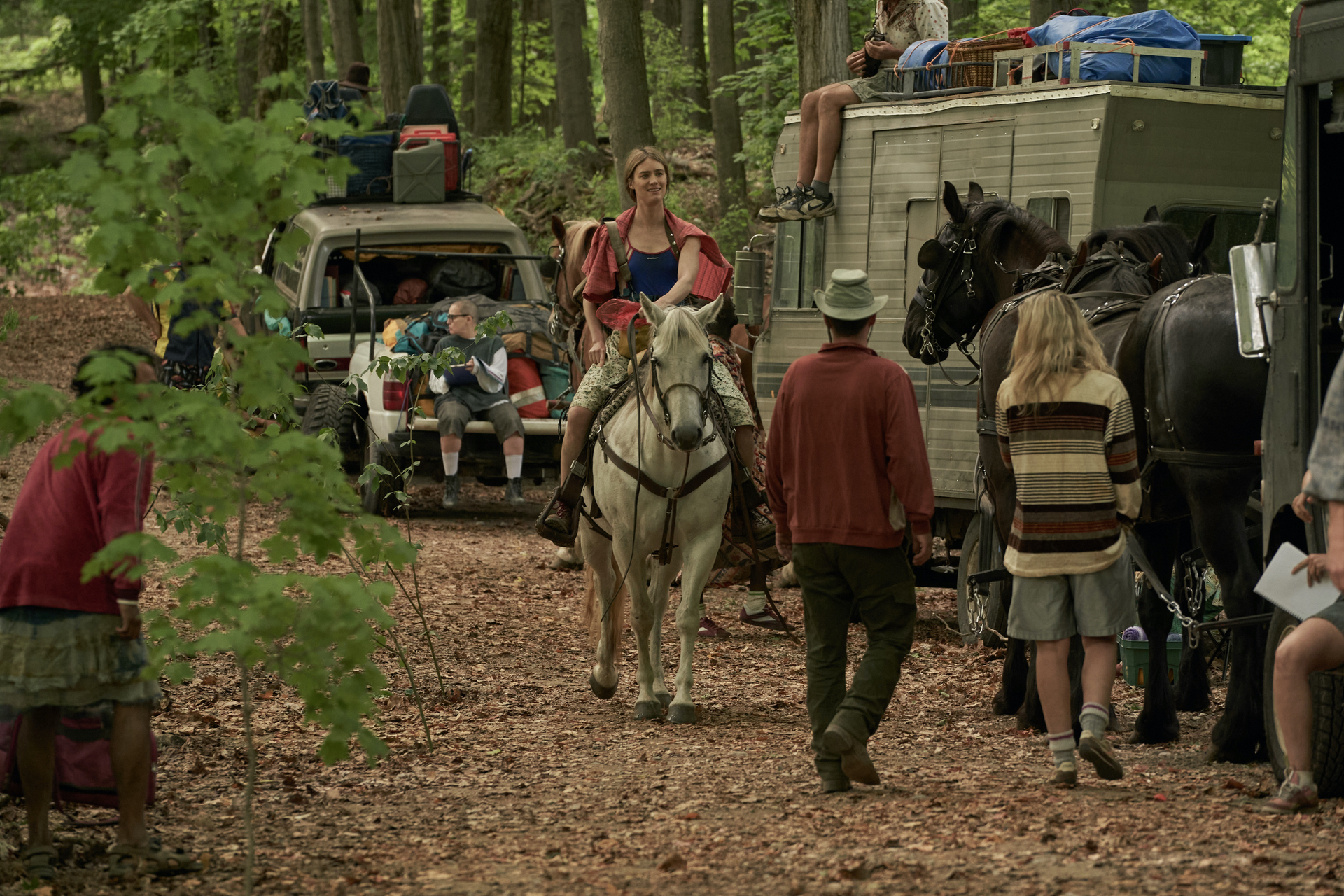
Comparatively, we see the aforementioned Joel and Rick Grimes completely shaped by their post-apocalypse lives, taking run-of-the-mill everymen and turning them into something quite different... for better or worse. This has its place, as do post-apocalyptic shows infested with zombies, nuclear fallout and more.
But Station Eleven shows that a more mundane downfall of current civilization can present an equally captivating canvas on which to tell distinctly human stories. If you are looking for something to watch in between The Last of Us, or simply want another bit of HBO brilliance, then I can't recommend Station Eleven enough.
Station Eleven is so good, you can buy it outright on Amazon, which sells it for between $28 (DVD) and $40 (4K Blu-ray).
Tom's Guide's latest streaming news
- 7 top new movies to watch on Hulu, HBO Max, Showtime and more this week
- How to watch The Mandalorian season 3: Disney Plus release date and time
- The best new to Hulu movies that are 90% or higher on Rotten Tomatoes

Roland Moore-Colyer a Managing Editor at Tom’s Guide with a focus on news, features and opinion articles. He often writes about gaming, phones, laptops and other bits of hardware; he’s also got an interest in cars. When not at his desk Roland can be found wandering around London, often with a look of curiosity on his face.
 Club Benefits
Club Benefits










